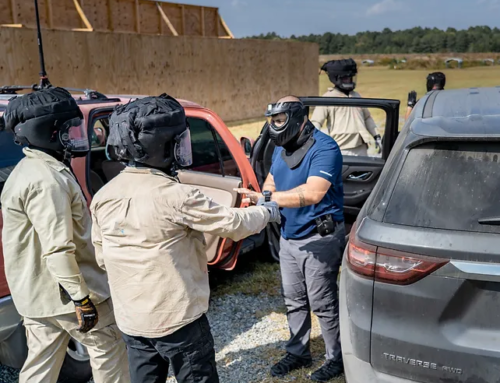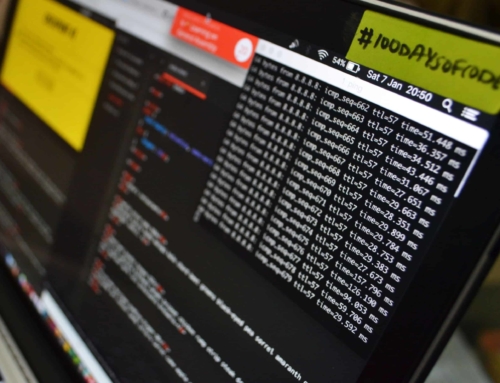
Bodyguard Services – The Modernization of Personal Security
If you would ask a non-security person who is the “big guy in a dark suit” next to a public figure, he/she will likely say: “that’s the Bodyguard!”
The 80’s and the 90’s saw the close protection business blooming; VIP’s, executives and celebrities realized that security could keep them safe while navigating through their complicated schedules. Culturally this was a straightforward concept for the public and the professionals of that era. High profile individual needs protection, big guy with a gun stands next to him/her everywhere he/she goes = problem solved. The approach was merely “reactive” (at best) and the operator was constantly on alert expecting an attack to happen not having a clue of who, why, when and from where it was going to materialize. Risk assessments were still a foreign concept, intelligence work was for government agencies only, and there was just a security company hired by the client who employed the “Bodyguard” and provided some sort of support.
The Embarrassment of Unprofessional Bodyguards (BG)
Most of the time coordination and preparation were limited to a scribble on a calendar, an address and some last minute “odd” requests from the client. There was a lot of approximation, hardly any prevention, no threat assessment but most importantly, the duties of the BG weren’t set in stone. The code of ethics for Bodyguards had not been written yet; image, liability and reputational risks not even contemplated and the relationship between the client and the protector, often deteriorated or became inappropriate. Embarrassing situations filled gossip tabloids, TV shows and the News, but not the good ones.
The move toward comprehensive Risk Management
In the XXI century, the world has changed and with it, every aspect of physical security and protection. Technology is now a vital component of security planning and it supports field operations at every juncture. The doctrine or art of Executive Protection formed a new generation of protectors whose backgrounds stem from Military and Special Forces, Law Enforcement and Intelligence agencies, as well as the private security sector. To be part of the “Security Detail or Team” you must be have a broad range of skills.
Nowadays, executives, multi-national corporations, high net worth individuals (HNWI), celebrities and VIP’s needs and requirements have evolved; liability, image, brand and reputation take priority over physical security. therefore, Executive Protection must encompass a long list of security services to provide a comprehensive, multi-layers protection package.
Pro-active Preparation is Key
A team of well-rounded professionals must embrace a new philosophy of protection based on planning, preparation and a proactive approach. Protection begins with understanding the client’s profile, related threats and risk levels and most importantly, by identifying, locating, studying and countering the potential “hostiles”.
Monitoring social media, conducting intelligence analysis, protecting image and reputation, and minimizing risks are all equally important elements of protection. Once the homework is done, parameters are set and the client is educated and compliant to the proposed security plan, the show goes on the road and that’s when the operational side of things comes into play.
The physical aspect of protection could not exist nor be of any use, without the preparation, planning, logistics and support provided “at base”.
So what happened to the good ‘ol Bodyguard during this transition?
Evolution is key! The Bodyguards that made it to the XXI century, became Close Protection Officers, the individuals that provide physical security and stand close to the principal/client at all time. The substantial difference is that to fit the same role they already had for years, they had to train harder, improve their skills and educate themselves about new disciplines and methods. The ones who chose to do so became part of an infrastructure where roles, and duties are defined, and every team member plays a vital role within the security detail.
The term Bodyguard has acquired a different meaning among professionals but not yet with the public.
It is our responsibility to educate our clients, to ensure that they understand what executive protection entails and willingly become part of their own protective detail to avoid the kind of misunderstanding and acts of resistance that had already claimed clients and protectors lives in the past decade.
Negative Perception to the word Bodyguard:
The very definition on the world-recognized dictionary Merriam Webster cites: “Bodyguard, a usually armed attendant or group of attendants whose duty is to protect a person”. Wikipedia offers a more elaborated meaning to this word such as: “A bodyguard (or close protection officer) is a type of security guard, government law enforcement officer, or soldier who protects a person or a group of people – usually high-ranking public officials or officers, wealthy people, and celebrities — from danger: generally theft, assault, kidnapping, assassination, harassment, loss of confidential information, threats, or other criminal offenses. The personnel team that protects a VIP is often referred to as the VIP’s security detail”
The perception of the public in regard to Bodyguards is often of superheroes with Ninja skills and the ability to defeat many enemies while others identify them as “glorified nightclub bouncers” who manage a large crowd surrounding a celebrity and rough up “paparazzi” when they get too close to their principal.
This perception of bodyguards is perpetuated by numerous accounts of unprofessional conduct worldwide. Many have caused serious reputational damage to their clients and been the cause of lawsuits including but not limited to; excessive use of force, unlawfully carrying or discharging firearms, breaking non-disclosure agreements, gross negligence etc.
Training is the differentiator
The reason is primarily focused on training (often the lack of) and the misconception of personal protection skills. The vast majority of ‘bodyguards’ that fall within this category have a criminal record, they come from violent environments where brute force is all they know; they never received any formal security training and concepts such as planning, preparing, advancing a location, contingency planning, risk mitigation and travel security are totally foreign to them. They may have combat skills but the reactive mode is never conducive to a safe and positive outcome during a critical incident. Furthermore, concepts such as prevention and avoidance are not even taken into consideration.
Reputational risk, as well as Physical:
The common denominator to all these potential incidents is the risk of permanent damage to the client’s reputation, with personal, professional and financial repercussions that could destroy a career and affect family and significant others, irremediably.
In the modern era we are living in, compliance is key to minimizing risks and liability. Protecting reputation, brand, and proprietary information represents a priority for any C-suite officer or HNWI so risk management and mitigation, intelligence analysis, social media and web monitoring, cyber security and data protection all blend into what is now recognized as the art of “Executive Protection”.
It requires high professionalism, discipline, integrity, and respect for confidentiality at all levels to build, execute and maintain a protection program that must suit and further adapt to the client’s needs and requirements.
Executive protection officers must be versatile, trained, experienced in many disciplines, and deeply involved in every aspect of the protection detail. A professional company must provide the infrastructure; including intelligence, logistics, and operational support to enable the field agents whose responsibilities go beyond guarding “someone’s body”.
It is definitely a long list of skills that an EP Officer must possess and possibly master to earn a position within the “Security Detail” and certainly there is more:
- Self-discipline and commitment
- Physical and mental wellness
- Language skills and international experience
- High levels of respect, discretion and confidentiality at all times
- The ability to maintain a strictly professional relationship with the client
- Enabling and facilitating client’s operations
- The ability to mentally and physically handle long shifts
- Excellent communication and organizational skills
- Risk and threat assessment experience
- Risk management and mitigation experience
- Crisis management
- Travel risk management
- Cyber security awareness
- Physical protection strategies and tactics
- Surveillance detection
- Security driving training
- Advanced medical training and experience
- Explosives and IED’s recognition and emergency management
- Firearms, CQB and Tactics training (specifically designed for Executive Protection)
- Martial-Arts, Self-Defense, CQC, knife, baton, improvised weapons and less lethal options training and experience
- Residential security experience (access control, video-surveillance, alarms, protective measures, panic-rooms, home-self-defense with and without firearms)
- Experience with VIP’s, HNWI’s, C-suite members, High Net worth Families (including minors and staff)
Training, education, and maintaining skills is a crucial component for high level executive protection.
As mentioned before, the time for a solo Bodyguard protecting a principal should be over and it is certainly unacceptable and unethical for security companies to propose such a solution to any client. Executive Protection is a huge effort to prevent and to avoid bad things from happening to a client and providing one operator without support and infrastructure is never acceptable.
In the modern era, the Security Detail or Security Team should be the norm when building a protection program around a client and possibly his/her family or entourage.
Compliance, Accountability and Liability
Liability is the propellant for everything we do, because we are liable for our actions and we must consider every aspect of executive protection to minimize liability risks to our clients. It is paramount to maintain this mindset throughout the mission whether is short or long term. A serious provider is called to evaluate countless aspects and scenarios to ensure its compliance at every juncture because it takes years to build a good reputation and everything can go away in a blink of an eye and by the irresponsible actions of a bad operator as well as a non-cooperative client during a critical incident.
If you are dealing with Personal Security, Reputation, and Family – Utilize Professionals
ETS Risk Management has chosen to deploy only Tier One operators for long term protection details because of the skills set and extensive experience of dealing with challenging, and dynamic situations. These operators can perform under the radar and under pressure, providing excellent service without seeking fame. For on-demand, short-term Executive Protection and Secure Transportation Services ETS leverages a global network of trusted local assets and we facilitate protective security solutions for a range of clients, including Fortune 500 C-Suite, Celebrities, and Ultra-High-Net-Worth’s.








